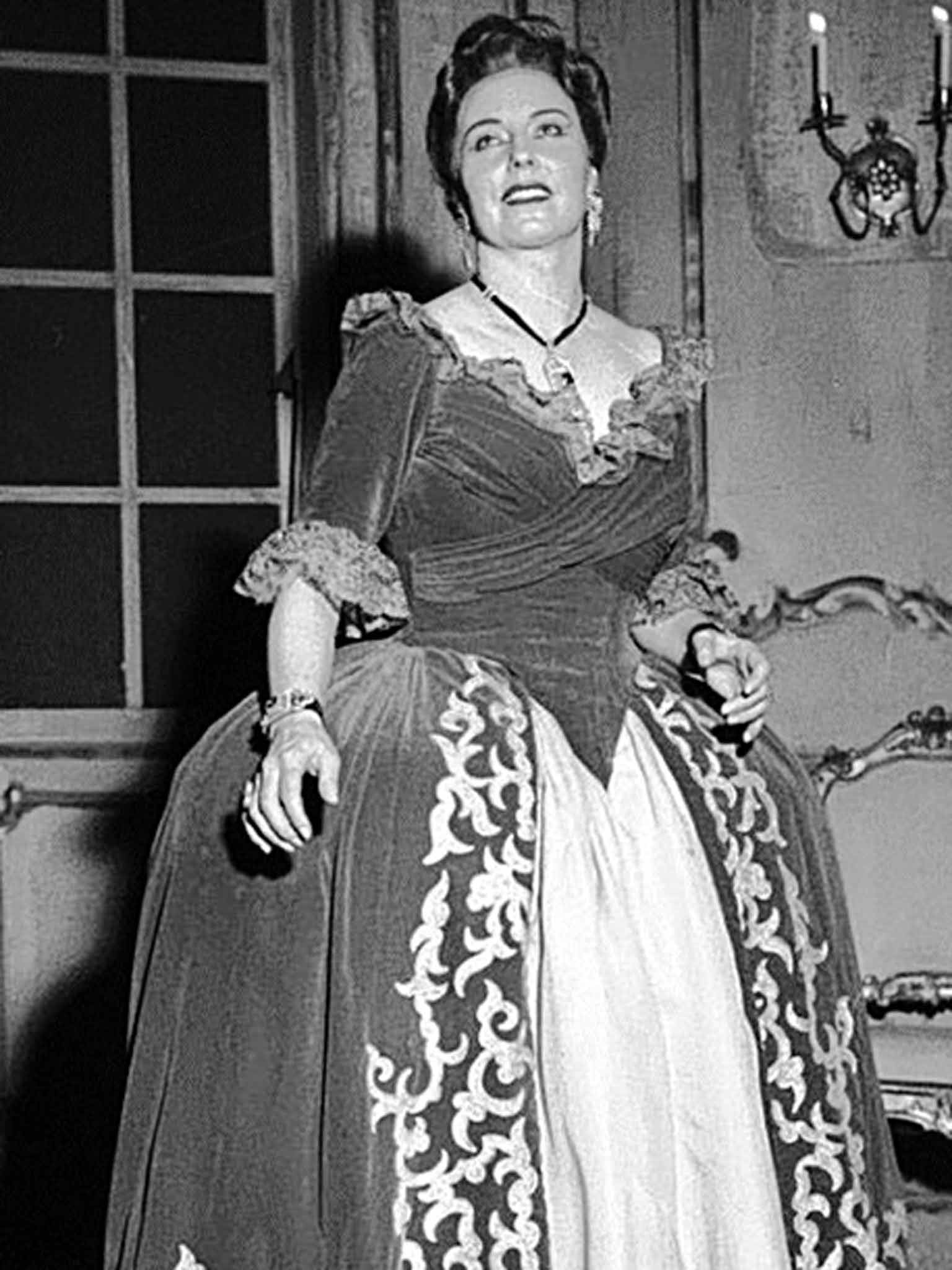Magda Olivero: Soprano who developed a devoted coterie of admirers who adored the dramatic intensity of her portrayals

Magda Olivero was an operatic soprano whose long career was marked by the extraordinary devotion of her followers, drawn by her remarkable vocal gifts and the dramatic intensity of her performances. She was one of the last practitioners of the Italian tradition of "verismo" singing, known for its dramatic realism and emotional expressiveness. She abandoned herself to her characters like a method actor.
Many critics were unmoved by what they saw as a strident voice and overblown theatrics. But Olivero defiantly sang on, continuing to give recitals well into her nineties. "Whatever it is that makes audiences turn to jelly," Howard Klein observed in The New York Times in 1971, "whatever that unknown quality is that reaches magnetically from a stage to communicate strong emotions to an audience, Olivero – in spite of technical limitations – has it."
Detractors pointed to what they considered flaws in Olivero's voice, such as a hollow, reedy tone, tight vibrato and an upper register that tended to shrillness. She continued to play ingenue roles past 70, one critic dismissing her as the "Norma Desmond of opera."
But she had a superb mastery of breath control, pitch, tone, dynamics and diction, all of which she used to full dramatic effect. She could effortlessly build a single note from a whispery pianissimo to a full forte, then return to near-silence. "The voice is only 40 per cent of an operatic performance," she once said. "The other 60 per cent is made up of innumerable intangibles. When I sing I do not think of singing, but of acting and the character. Of course, to do this you need a great deal of vocal technique, otherwise it is impossible."
Almost from the beginning she had a coterie of admirers. Then at 31 she married and left the stage. A decade later she was lured back by the dying wish of the composer Francesco Cilea to provide him "one last joy" by singing the title role of his 1902 work Adriana Lecouvreur.
Placido Domingo recalled a performance in which Olivero, then in her fifties, played the tragic heroine in Puccini's Manon Lescaut. "After the final death scene," he said, "the audience was in a frenzy. About 500 people broke through the guard rails and swarmed to the stage. It was frightening. We had to have police protection."
When tastes in vocal performance changed, she stayed true to her distinctive style. She had a wide repertoire but preferred the Italian classics like La Bohème, La Traviata and Madame Butterfly. She cared little about making records and for much of her career did not have a manager or publicist. Her fans began to circulate bootlegs, making her an underground sensation, and like Maria Callas she had an ardent following among gay men. µ MATT SCHUDEL
Maria Maddalena Olivero, singer: born Saluzzo, Italy 25 March 1910; married 1941 Aldo Busch (died 1983); died Milan 8 September 2014.
© The Washington Post
Subscribe to Independent Premium to bookmark this article
Want to bookmark your favourite articles and stories to read or reference later? Start your Independent Premium subscription today.

Join our commenting forum
Join thought-provoking conversations, follow other Independent readers and see their replies